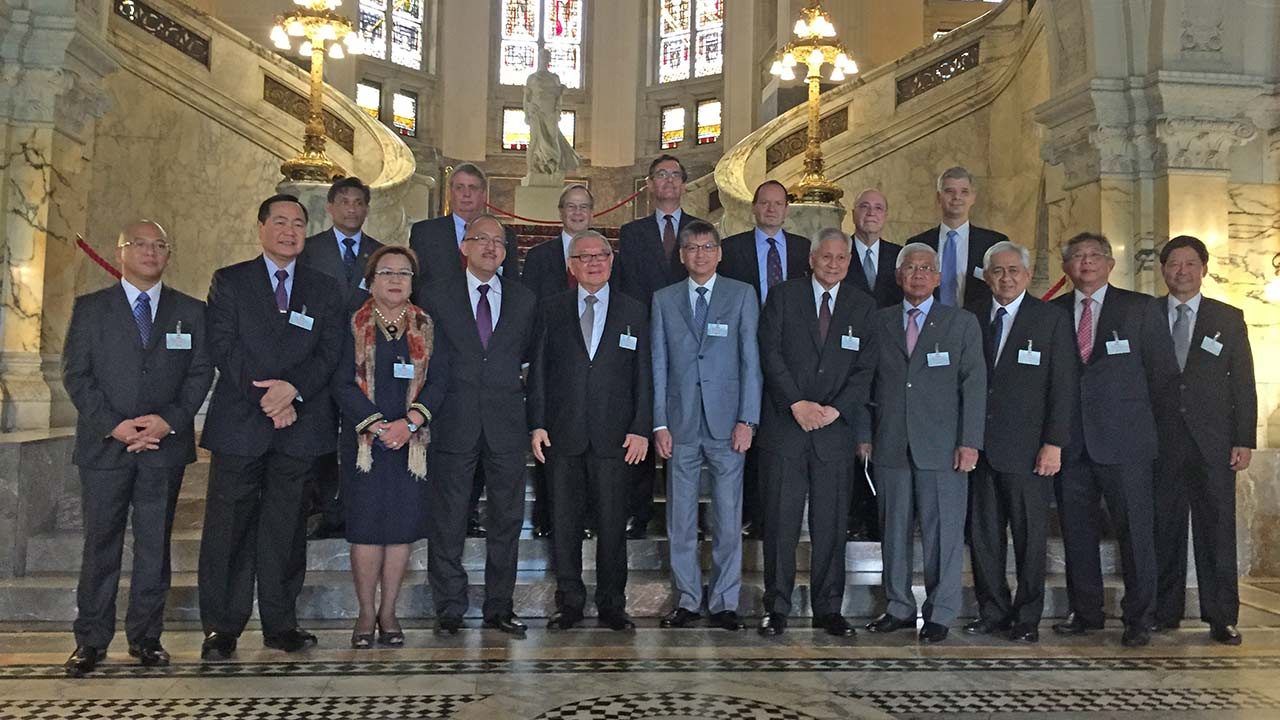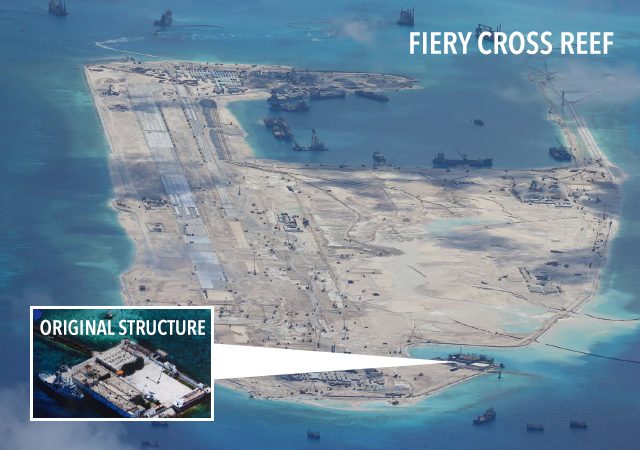SUMMARY
This is AI generated summarization, which may have errors. For context, always refer to the full article.

MANILA, Philippines – While the Philippines expects to win its historic arbitration case against China, a leading maritime law expert believes Manila is likely to get a mixed ruling on the major hurdle of jurisdiction.
Jay Batongbacal, assistant professor at the University of the Philippines College of Law, said that the most plausible outcome is for the arbitral tribunal based in The Hague to divide the Philippines’ claims on the South China Sea. The tribunal will then decide on each claim whether or not it has jurisdiction or the power to try the case.
“Given that the case presented by the Philippines is rather complicated – there are at least 13 to a little less than 20 claims depending on how you count them – I think it’s realistic to expect that at least the tribunal will come up with a mixed decision saying it has jurisdiction on some, but not on others,” Batongbacal said on Rappler Talk on Thursday, July 9.
Watch the full interview:
The Philippines is presenting oral arguments from July 7 to 13 to convince the tribunal to take jurisdiction of its case. Jurisdiction is Manila’s toughest obstacle, with Beijing arguing in a position paper in December 2014 that the tribunal does not have power over the case.
Batongbacal said it is crucial for the Philippines to win jurisdiction because under the tribunal’s rules, the issue must first be resolved before it can proceed to the merits.
The director of the UP Institute for Maritime Affairs and Law of the Sea said that the best case scenario for the Philippines is for the tribunal to rule that it has jurisdiction on all the claims. The worst case is for the arbitrators to say they have no jurisdiction; case closed. (READ: Rough seas: Will PH ‘lawfare’ work vs China?)
“That can happen if they are convinced of China’s arguments that the issues cannot be separated: the sovereignty over the land cannot be separated from the maritime features, and therefore the maritime rights and jurisdiction cannot also be decided unless they first go into sovereignty over land,” he said.
China argues that case is about who owns disputed islands and rocks in the South China Sea. Territorial sovereignty is beyond the scope of the UN Convention on the Law of the Sea (UNCLOS), known as the constitution for the oceans.
For the Philippines, the case is about the sea, not land, particularly maritime rights under UNCLOS like the right to fish and to exploit oil and gas within an exclusive zone. (READ: EXPLAINER: Philippines’ 5 arguments vs China)
“So the difficulty really lies in that divide,” Batongbacal said. “Because conventionally or normally, whenever maritime issues are presented to international tribunals, they first have to determine who has sovereignty over the adjacent land features before they can move on to the adjacent waters because of the principle ‘the land dominates the sea.’”
The foundation of UNCLOS, this principle means that states are able to exercise rights over waters depending on the distance from adjacent land.
Batongbacal agreed with Philippine Supreme Court Associate Justice Antonio Carpio that if the Philippines hurdles jurisdiction, the tribunal will likely strike down China’s controversial 9-dash line.
Invalidating the 9-dash line is one of the main objectives of the Philippines.
China uses the line to claim almost the entire South China Sea where $5 trillion in global trade passes every year. The sea is also the site of coveted fishing areas, and potential vast deposits of oil and gas. Vietnam, Malaysia, Brunei and Taiwan also have claims to the sea.
Reclamation a tricky issue
China’s massive reclamation in the South China Sea is another issue the Philippines raises.
The law professor has said that reclamation “tampers with the evidence,” because it casts doubt on whether the features were originally rocks or islands, which have different maritime entitlements.
‘Embarrassing China only makes them dig in even deeper into their positions like reclamation. But moral suasion would certainly have some influence in the long-term.’
– Professor Jay Batongbacal
Batongbacal said that the problem is 3 of the 8 maritime features that China turned into artificial islands are beyond the Philippines’ exclusive economic zone (EEZ). The Philippines has the right to explore and exploit natural resources within its 200-nautical mile EEZ.
He said UNCLOS allows states to create artificial islands in the high seas or international waters.
“Although we have contested their legality, if the artificial islands are regarded by the tribunal as being part of the high seas then it does not actually help us because China, just like any other state, would be able to say they can establish these islands in the high seas. And that’s under our own theory so that really is a problem,” Batongbacal said.
He added that the Philippines only has the chance of contesting the legality of reclamation in features within its EEZ like Mischief Reef.
“If we’re successful in convincing the tribunal that the artificial islands are within our EEZ and continental shelf, and that none of the other island features in that area can generate such a shelf or zone, then we can ask the tribunal to say they are in violation of international law because they are constructions on somebody’s EEZ.”

‘Shaming China won’t work’
Besides jurisdiction, the other challenge for the Philippines is getting China to follow a ruling favorable to Manila. The tribunal is expected to hand down a decision by early 2016.
Batongbacal said that the Aquino administration’s naming and shaming strategy will not work.
“Embarrassing [China] only makes them dig in even deeper into their positions like reclamation. But moral suasion, a clear statement that these are the rules that everyone must follow, would certainly have some influence in the long-term. States do place importance on their stature and reputation in the international community,” he said.
The maritime scholar shared the observation of many analysts that the Philippines relies too much on the legal track to resolve the maritime dispute. Whether officials admit it or not, the arbitration case dominated Philippine-China relations since 2012.
“We really need to diversify in order for us to maximize whatever benefits we can get from each and every option. That can include bilateral negotiations if necessary, but that does not preclude multilateral negotiations on another front or even arbitration again, if we feel that is necessary on another issue. We can use ASEAN, military alliances, bilateral alliances – we should make use of all of them.”
He said exploring other avenues is important because it will take more than a decade for a positive ruling to be enforced. (READ: The impossible dream and the West Philippine Sea)
Win or lose, talking to China will be inevitable.
“A ruling will help us in the future in negotiating some other arrangement, so ultimately it’s about reinforcing your argument, your negotiating position.” – Rappler.com
Add a comment
How does this make you feel?

There are no comments yet. Add your comment to start the conversation.